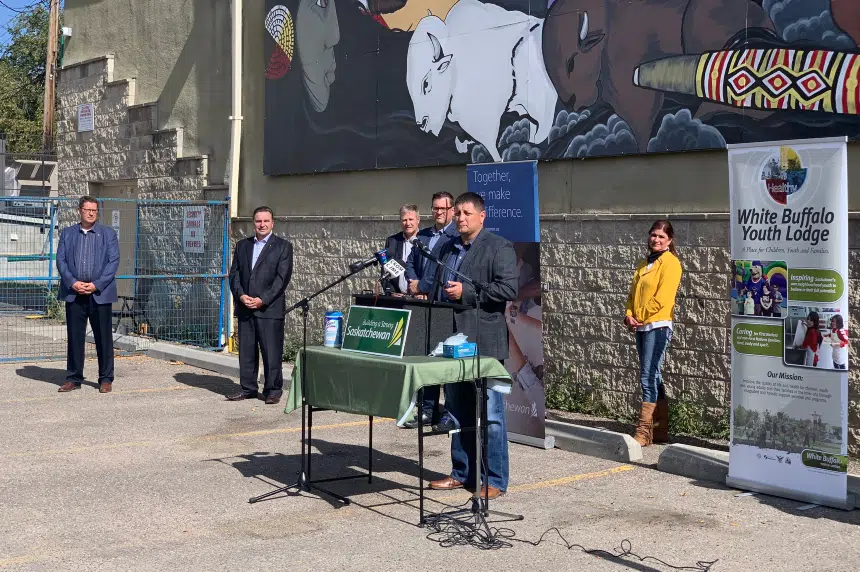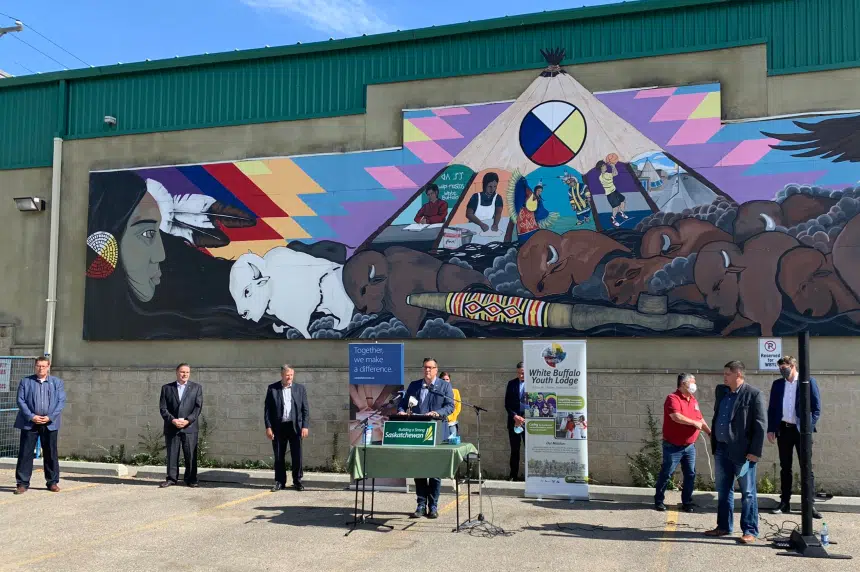After the successful deployment of teams following the City Centre Inn & Suites closure, a new pilot project was formally announced Thursday designed to get Saskatoon’s homeless population into stable housing.
The pilot is led by Saskatoon Tribal Council (STC), and called Sawêyihtotân, meaning ‘let us bless each other through our show of respect for each other.’
Saskatoon city council held a special meeting Wednesday on the project, which was funded to the tune of $100,000. That total was matched by the province, split between both the Ministry of Social Services and the Ministry of Justice. Including staff resources, Social Services will provide more than $117,000 in funding towards the work.
“We don’t want anyone to be on the streets, certainly not with winter approaching. If they need to isolate due to COVID-19, we also don’t want anybody living in unsafe conditions. Our vision is to see all citizens, whatever their circumstance… have access to safe and stable housing,” said Minister of Social Services Paul Merriman during the press conference, held at White Buffalo Youth Lodge Thursday.
Merriman said two staff members from the Ministry, along with one from the Saskatoon Health Authority will join the team.
Saskatoon Mayor Charlie Clark called the new project a paradigm shift as to how teams will look at situations with the homeless population.
“For a long time in Saskatoon, the issues of homelessness, the issues of mental health and addictions on our streets— they’ve caused a lot of hand-wringing,” he said. “Our residents want to know that we’ve got the right systems in place to look after people.
“I’ve been part of finger-pointing, and saying ‘we can’t do it without the support of the province,’ ‘we can’t do it without other partners involved.’ Today, we’ve got everybody at the table. That’s a huge step for our community.”
Clark spoke of reconciliation and said there’s lots of talk around the word, and meaning. But, the next step of reconciliation, Clark said, “is the action.”
“It’s a start. It’s to begin doing this evaluation analysis and applying the Indigenous-led model… this has all happened very quickly in the last few months,” he said. “If we invest in more proactive mechanisms to getting people housed, we will save on (policing, hospital and ambulance costs).”

STC Chief Mark Arcand said this project has given it the ability to take the lead on a negative situation that impacts a lot of the Indigenous community.
“Since this morning, I’ve been getting messages from my office about people wanting to help us… these are non-first nations people wanting to help our city, our community and our province. And that’s meaningful,” he said.
“The goal isn’t to incarcerate people anymore. The goal is to give people the quality of life through the initiative that we’re doing here together as a city, as a province.”
The program is broken into two phases. The first, looking at a comprehensive community-based management strategy and a long-term transitional supportive housing model.
The second phase will explore a collaborative approach of providing supports for vulnerable community members.
Arcand said depending on staffing, the project will begin in the final week of September, or the first week of October.
Arcand and Clark both talked of housing models, such as the Lighthouse, and how changes are needed moving forward.
“By putting a person in a shelter, what’s the goal in that? The goal is to have them live on their own. It’s to put them in a place where they feel valued,” Arcand said.
Clark called the Lighthouse a ‘lightning rod’ for some of the downtown issues.
“A lot of people are talking about what’s the future of the Lighthouse going to be? And we’ve talked about how we need to find a new model for the Lighthouse, to take some of the pressure off all of the activity that’s going on in that one site,” he said.
Arcand said the program will include reporting every 30 days as to who has been moved into long-term and short-term housing, who has been moved to, or off of, income assistance, their access to both mental and addictions services and supporting the population daily.
“It’s not just going to happen overnight. And the community can’t expect that, the community has to be patient and understanding,” he said. “If COVID-19 wasn’t here, our staff wouldn’t (have) been able to go to the City Centre Inn & Suites…. because of COVID, we were able to deploy everybody and set a standard for the new way we’re going to do business.”











